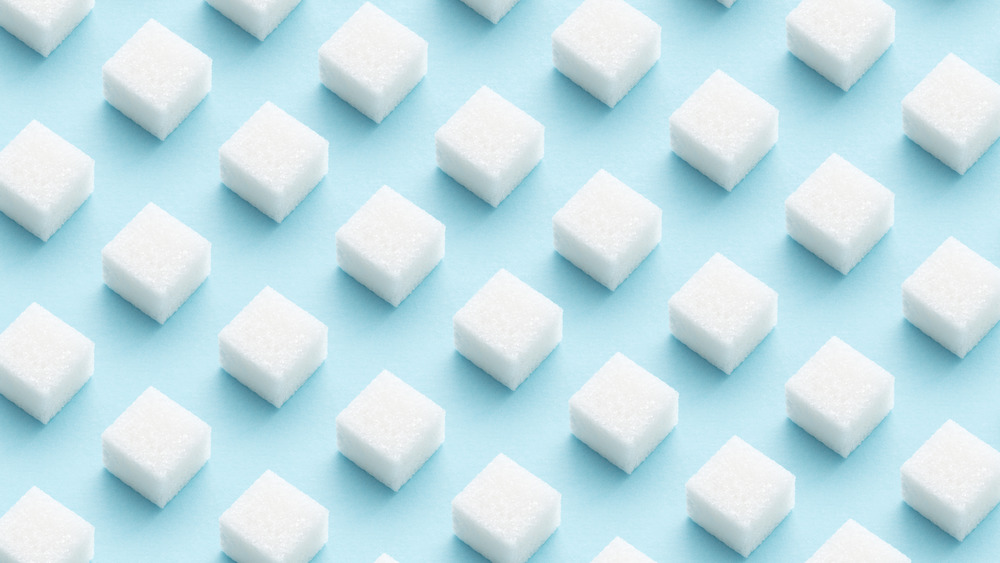Here's How Much Sugar You Should Really Have In A Day
Ah, sugar. It's the thing we all love to hate, and yet we still love... enough to consume in large amounts. Our love/hate relationship with sugar would be funny if it wasn't sounding alarm bells among doctors and nutritionists.
While some of the research on the effects of sugar consumption may be up for debate, one thing is not — Americans consume way more than they should. According to the American Heart Association, women should consume no more than 25 grams (or 6 teaspoons) of added sugars per day, and men should consume no more than 36 grams (or 9 teaspoons). To put this in perspective, a single 12-ounce can of coca-cola contains 39 grams of sugar — more than the recommended daily allowance for either sex — and the average American adult consumes an unhealthy average of 77 grams of added sugars per day.
The problem with these numbers is that excessive sugar consumption is associated with a host of health problems, making it a serious public health issue. Helga Van Herle, M.D., a cardiologist and associate professor of clinical medicine at the Keck School of Medicine of USC, explains, "There have been several studies that show a relationship between increased daily added sugar intake and a higher risk of various cardiovascular and metabolic disorders, including high blood pressure, diabetes mellitus and fatty liver disease." And since excess sugars turn into fat, they also present a serious challenge to our weight loss goals.
Americans consume way too much sugar
Added sugars are usually found in processed, packaged foods, while naturally-occurring sugars are intrinsic to the food itself (like lactose in milk, or fructose in fruit). Although both are technically 'sugars,' there's a big difference between eating an apple or slurping down a Coke. Whole fruit contains fiber, which slows down sugar absorption while providing plenty of nutrients. On the other hand, the sugars in a soda are absorbed immediately, causing a blood sugar spike and sending the pancreas into overdrive producing insulin to stabilize the spike (via Eat This, Not That!).
So how can we start to bring our daily sugar consumption down to healthier levels? The two biggest sources of added sugars in the American diet are sugary beverages and processed sweets. Colleen Tewksbury, Ph.D., M.P.H., R.D., a senior research investigator and bariatric program manager at Penn Medicine and president-elect of the Pennsylvania Academy of Nutrition and Dietetics, told SELF, "These products that are basically nothing but added sugar in high concentrations and little other nutritional value are the sources of the vast majority of the added sugar individuals consume." Cutting back the number of sweet beverages and treats, and replacing them with healthier, low-sugar alternatives, is a great place to start.


